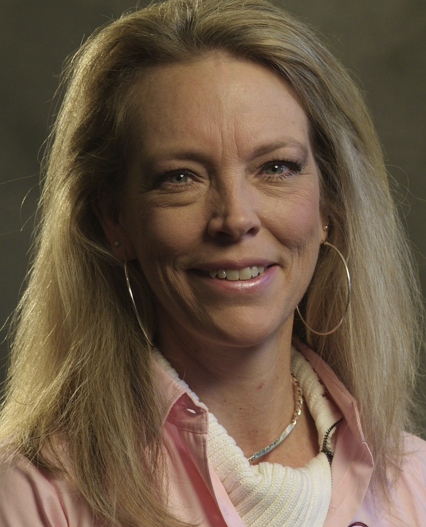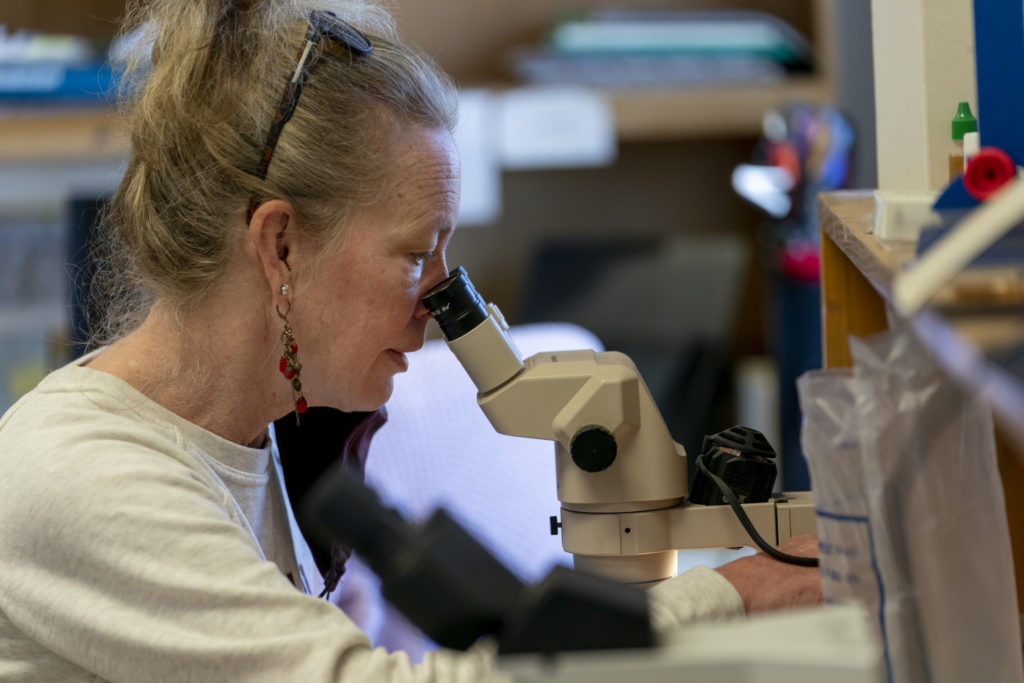A passion for plant diagnostics
Sheila McBride retires after 35 years of plant diagnostics work with Texas A&M AgriLife Extension Service
Plant diagnostics has always intriqued Sheila McBride.

Whether it was her critical role in helping diagnose cotton root rot that devastated the Texas wine grape industry or assisting homeowners with drought-ravaged post oaks, McBride’s career as a plant diagnostician with the Texas Plant Disease Diagnostic Laboratory of the Texas A&M AgriLife Extension Service has been checkered with helping people solve problems.
Plants and science have always been an intrigue for McBride, who said her initial interests began in sixth grade after working with her first microscope.
“I was hooked when my teacher let us look at pond water under the microscope,” McBride said.
Her career that spans 35 years with Texas A&M AgriLife culminates with her retirement Jan. 31.
Passion for helping others
McBride said there’s a lot of self-satisfaction in helping others solve problems.
“My passion is helping homeowners, the green industry, growers and people,” McBride said.
Her start in plant diagnostics came after graduating from Texas A&M University in 1985 with a bachelor’s of science degree in microbiology.
A Houston native, McBride said the small-town allure of College Station drew her into establishing her roots and career. She began working on the Texas A&M campus in the nematology laboratory with Jim Starr, Ph.D., now professor emeritus, and later worked in fungal genetics under Dan Ebbole, Ph.D.
Those laboratory experiences prepped her for a safety coordinator role and building proctor duties before transitioning in 2007 into the newly opened position at the Texas Plant Disease Diagnostic Laboratory in College Station, TPDDL-CS.
“I wish I had found Extension sooner,” she said. “In addition to helping people, I also have thoroughly enjoyed mentoring undergraduate students. I don’t think I would have gotten to this point in my career without my prior experiences.”
“Sheila is a valuable member of the Department of Plant Pathology and Microbiology,” said Kevin Ong, Ph.D., laboratory director. “In her role as the head diagnostician at the TPDDL-CS, she has touched the lives of many undergraduate students who at some point worked at the clinic. Several of these have gone on to pursue further studies, quite a few pursuing master’s degrees or doctoral degrees in the plant pathology area.”
Cotton root rot, wine grapes
In 2012, growers were peppering the diagnostic laboratory with phone calls and emails, desperately seeking answers as to why their grapevines were dying.

McBride and fellow plant pathologist David Appel, Ph.D., who retired from AgriLife Extension last year, worked tirelessly to find a solution to control the devastating cotton root rot pathogen that was attacking the vines. The effort would later be her graduate project as part of her master’s degree in plant pathology which she received in 2016.
Her role as a diagnostician is one that takes both laboratory experience and a keen sense.
“It’s an art and science,” she said. “It takes a lot to know what to look for and how to look for it.”
Professional affiliations and future plans
McBride has served on the National Plant Diagnostic Network and the American Phytopathological Society, chairing and co-chairing the Extension committees.
She was also trained as a System for Timely, Accurate and Reliable Diagnostics accreditation auditor during the early implementation phase of the National Plant Diagnostic Network accreditation program.
Her retirement plans include breaking in a new camper she recently purchased, plus looking forward to spending time with her grandson and family.
“I also like to garden and would like to become a Master Gardener,” she said.


